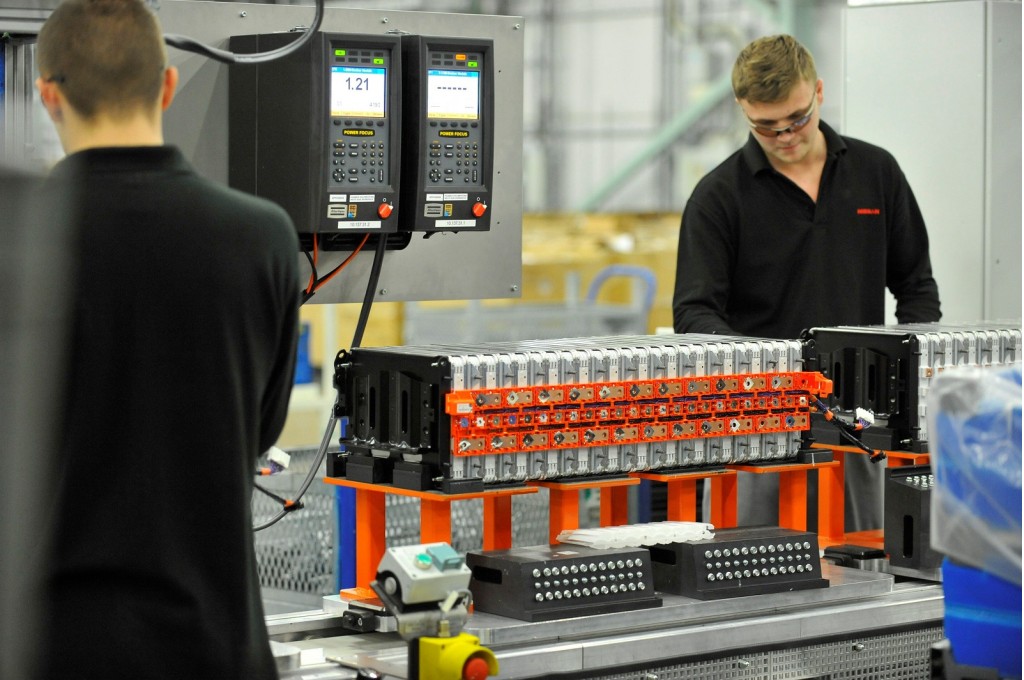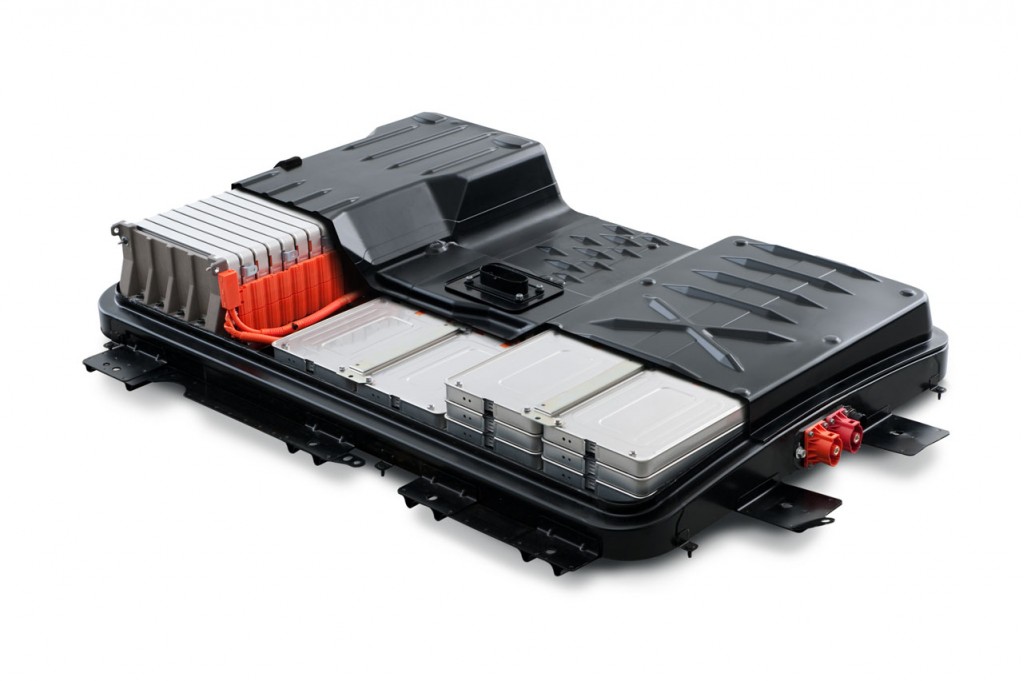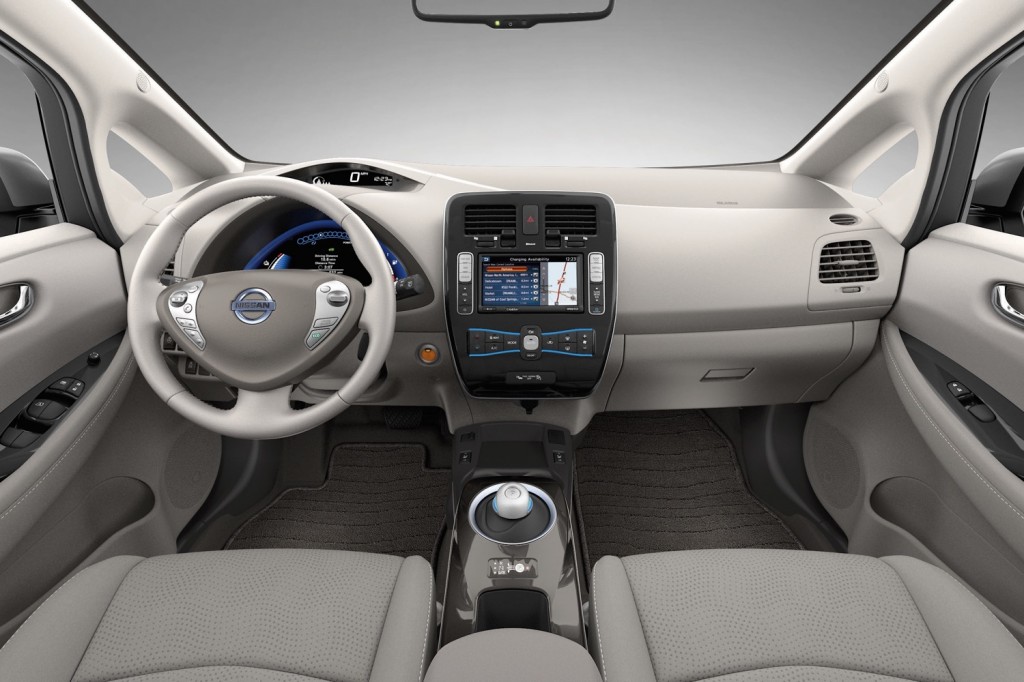In designing, testing, and producing the Nissan Leaf, the first modern electric car sold in volume, Nissan made a design decision that some other companies didn't.
It chose not to build an active thermal-conditioning system (otherwise known as cooling) into its battery pack.
Instead, it relies on ambient air to shed heat—which got the maker into trouble with owners in very hot climates like that of Phoenix, Arizona, where asphalt temperatures can reach 140 degrees F or more in the summer.
DON'T MISS: Lessons learned from early electric car: 2011 Nissan Leaf at 90,000 miles
Nissan later switched to a more heat-resistant battery chemistry, informally known as "lizard cells," but many earlier Leafs have experienced significant battery capacity declines.
Some of those, however, are not quite enough to hit the 70-percent mark within five years, meaning that Nissan's battery-capacity warranty is no longer in effect.
Nonetheless, owners can sometimes bargain with Nissan and their dealership to get concessions on a replacement battery pack.

Lithium-ion cell and battery pack assembly for Nissan Leaf electric car in Sunderland, U.K., plant
Owner Tim Jacobsen of Concord, California, was able to get a deal on a replacement battery for his 2011 Nissan Leaf even though the car had only 33,000 miles on it.
He and his husband Steve have shared the car for more than four years, but their saga of negotiating a battery replacement carries some important lessons for all Leaf owners—especially those with the earlier, more heat-sensitive battery packs.
He shared his tips on negotiating with dealers with us, which we've edited only for style and clarity, here:
READ THIS: Nissan Leaf New Battery Cost: $5,500 For Heat-Resistant Replacement Pack (Jun 2014)
While keeping your expectations low to avoid disappointment, a few key things can greatly increase your chances of out of warranty coverage.
- Start calling Nissan early, before you lose your fourth capacity bar, to report your disappointment.
- Call a few times, and establish a case number.
- Keep a positive and respectful attitude with every contact: being rude and nasty to a representative will get you nothing in the end.

2011 Nissan Leaf - battery pack cutaway
- Nissan's end goal is customer retention: they want to hear that you love your car, that you want to keep it for many years, and that you will recommend Nissans to your friends and relatives.
- Loyalty counts: if you have purchased, or own, more than one Nissan vehicle, tell them! Mention that some day you want to buy a new Nissan electric car again.
- Mention anything else positive about your car: that you haven't driven it all that many miles, that you keep it nicely maintained, or that you love to drive it.
- Write a concise, one-page letter with all the information above, and fax it to your Nissan case manager when the time comes to apply for battery replacement assistance.
CHECK OUT: Electric-Car Buyers Expect Battery Upgrades To Be Available
Intrigued by these tips, we asked Tim for more information about his Leaf purchase and his experience with Nissan warranty claims.
He wrote us the following, which we've edited only for style and clarity.
In 2010 with rising high fuel prices we became interested in the Leaf after an indoor test drive at the San Francisco auto show. I was very impressed with the car.
We decided that we could own a Nissan Leaf, which would be secondary to our other gas vehicle for long trips.
The Leaf could be used as a ‘Bay Area car’ since its range was around 100 miles, largely depending on road usage and speed. This would cut our gasoline budget in half.
![2011 Nissan Leaf electric car after battery-pack replacement [by owner Tim Jacobsen, Concord, CA] 2011 Nissan Leaf electric car after battery-pack replacement [by owner Tim Jacobsen, Concord, CA]](https://images.hgmsites.net/med/2011-nissan-leaf-electric-car-after-battery-pack-replacement-by-owner-tim-jacobsen-concord-ca_100599982_m.jpg)
2011 Nissan Leaf electric car after battery-pack replacement [by owner Tim Jacobsen, Concord, CA]
In March 2013, we made our purchase of our 2011 Leaf from Antioch Nissan. It was a manager's demonstrator car with only 4,000 miles on it, and it was their only with our desired equipment and color selection.
After our purchase, we had also applied for the PG&E EV-Rate plan of which resulted in a substantial break on our electric rates. It was a huge bonus to seemingly get paid mileage, when you calculate the difference.
My Nissan Leaf is a great car, and an excellent car to drive. it's very quiet, smooth power, excellent handling. It’s definitely a favorite of the many cars I’ve owned over the years.
But soon after the hot summer of 2013, I started to notice a small drop in range. Then came spring 2014, and I lost my first capacity bar.
It wasn’t long after this when it was announced that the 2011 and 2012 Leafs were built with a lithium-ion battery pack that was highly prone to capacity loss in high temperature zones.
As time went on, thru the following summers, my range continued to suffer and drop. This wasn’t the same car any more.

2017 Nissan Leaf
Eventually I could not drive it to San Francisco and back without needing to charge en route. And then I couldn't even get to Oakland and back without the blaring messages that warned me of low battery charge.
I had made contact with Nissan Consumer Affairs twice within the 5/60k capacity warranty range and voiced my frustration at how it wasn’t fair to those of us who lived in hot climates to suffer this terrible range loss.
Since I had not lost my fourth capacity bar, Nissan refused to do anything for me. So I continued to live with the progressing range loss.
At three capacity bars lost, I had just crossed over the warranty expiration date of August 8, 2016—which was a very frustrating feeling.
March 2017 came along and my four capacity bar was lost at 33,435 miles. I could barely reach 45 miles of freeway driving until the low-battery message activated.
I immediately contacted Nissan for the third time, and I was fully prepared with a written letter of reasons why they should cover battery replacement for me. I submitted my letter and applied for “out of warranty” assistance.

2017 Nissan Leaf
I was assertive but—MOST IMPORTANTLY—respectful to the representative helping me. My letter contained facts and explanations supporting my case.
Also, I highlighted my personal brand loyalty, my history of previously owned Nissans, my love for the Nissan electric cars, the desire to keep my Leaf for many years, and future interest in buying another down the road, and lastly the mint-condition in which I keep my Leaf.
Two days later, I received a phone call from Nissan Consumer Affairs. They granted me a deal to cover 80 percent of the cost to replace the battery. I accepted the deal without questioning anything, knowing that I had just become lucky.
I happily paid 20 percent, or $1,200, for the brand-new battery pack. I am now a very happy customer with my Nissan Leaf regaining its lost range, and grateful for the assistance.
I feel that being organized and submitting my story in this way made all the difference in the outcome. My low mileage was also likely a major factor in receiving assistance.
My Nissan Leaf is once again ‘the perfect car” for me. There is not one complaint. (Thank you, Nissan Consumer Affairs!)
_______________________________________













